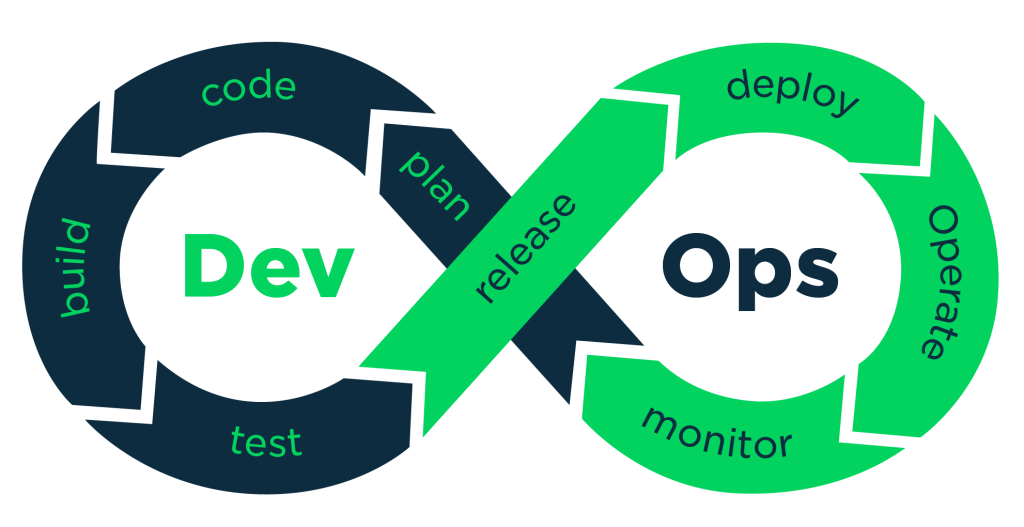Introduction to DevOps Tools
DevOps tools are a set of software tools and technologies that support the practices and processes of DevOps. This software development methodology emphasizes collaboration, communication, and integration between software development and IT operations. Many manual processes and workflows are automated by DevOps tools, allowing organizations to deliver software more quickly and reliably. Version control systems, continuous integration and deployment tools, infrastructure as code tools, monitoring and logging tools, and containerization tools are all examples of DevOps tools. These tools aid in automating and simplifying various aspects of the software development life cycle, such as code management, testing, deployment, and infrastructure management. Check out the DevOps handbook.
Why are DevOps Tools Important in Software Development?
DevOps tools play a crucial role in software development by improving efficiency, enhancing collaboration, and automating processes. The following are some of the critical reasons why DevOps tools are essential:
Improving Efficiency:
DevOps tools automate many manual processes and workflows, reducing the time and effort required to complete tasks. This leads to faster and more efficient software development.
Enhancing Collaboration:
DevOps tools facilitate collaboration and communication between development and operations teams, helping to break down silos and improve the flow of information and feedback.
Automating Processes:
DevOps tools automate various software development life cycle aspects, including code management, testing, deployment, and infrastructure management. This helps to reduce the risk of human error and improve consistency and reliability.
Streamlining Deployment:
DevOps tools help to streamline deployment processes, enabling organizations to release software updates more frequently and quickly.
Improving Visibility and Transparency: DevOps tools give organizations visibility into the software development process, allowing them to monitor performance, track progress, and identify areas for improvement.
picture
Types of DevOps Tools

-
Version Control Systems:
Version Control Systems (VCS) are software tools that manage and track changes to source code over time. They allow multiple developers to work on the same codebase, store different code versions, and facilitate collaboration. VCSs provide features such as branch management, code merging, and rollback options. This, therefore, makes it easier for developers to work together and maintain the integrity of the code. The most popular VCSs include Git, Mercurial, Subversion, and Perforce. A VCS is essential in software development, as it helps prevent data loss. It also helps in enabling effective collaboration and management of code changes.
-
Continuous Integration and Deployment Tools:
Continuous Integration and Deployment (CI/CD) tools are software development tools that automate the process of building, testing and deploying code. CI/CD aims to provide developers with fast and reliable feedback and ensure that code changes are automatically integrated and deployed to production environments.
CI tools monitor code repositories and run automated tests on newly pushed code, providing quick feedback on the code’s quality. CD tools automate the deployment process, enabling teams to quickly and efficiently deploy new releases to production environments.
CI/CD tools help reduce human error, increase collaboration, and improve the speed and reliability of the deployment process. Some popular CI/CD tools include Jenkins, Travis CI, and CircleCI.
-
Infrastructure as Code Tools:
Infrastructure as Code (IaC) tools are DevOps tool that allows for managing infrastructure resources as code rather than manual configurations. This approach helps to automate the provisioning and management of infrastructure resources. It also helps in reducing the risk of errors and increasing consistency and repeatability.
IaC tools provide version control and collaboration features, enabling teams to manage and track changes to their infrastructure as they would with source code. This helps to maintain a history of changes and revert to previous configurations if needed. It also helps in collaborating with other team members on infrastructure updates.
Examples of IaC tools include Terraform, CloudFormation, Ansible, and Puppet. Using IaC helps organizations to streamline their infrastructure management processes, increase efficiency, and reduce the risk of errors, making it an essential component of modern DevOps practices.
-
Monitoring and Logging Tools:
Monitoring and Logging tools are an essential component of DevOps, responsible for tracking and analyzing applications, services, and infrastructure performance and behavior. These tools provide real-time visibility into the health and performance of systems, helping to identify and resolve issues before they become critical.
Monitoring tools collect data on system performance and resource utilization, alerting administrators to potential issues and helping to ensure that applications and services are running optimally. Logging tools record system and application events, including error messages and debug information. This information can be used to diagnose and resolve issues, as well as to track changes and monitor performance over time.
Examples of Monitoring and Logging tools include Nagios, Datadog, and New Relic for monitoring, ELK (Elasticsearch, Logstash, and Kibana), and Graylog for logging. Monitoring and Logging tools help organizations to proactively address issues and improve their systems’ stability, performance, and security.
-
Containerization Tools
Containerization tools are a type of DevOps tool that provides a way to package and deploy applications and their dependencies as containers. Containers are isolated, lightweight environments that allow applications to run consistently across different domains and platforms.
Containerization tools such as Docker and Kubernetes provide an efficient and portable way to package and deploy applications, enabling developers to focus on writing code. At the same time, the infrastructure is managed by the containerization tool. This helps to simplify the deployment process, reduce the risk of compatibility issues, and improve collaboration among development teams.
Kubernetes, for example, provides container orchestration and management capabilities. This makes deploying, scaling, and managing containerized applications in production environments easier. The use of containerization tools helps organizations improve the speed and efficiency of their software delivery processes, making it an essential component of modern DevOps practices.
DevOps is one of the services provided by sofhub, a multifunctional software development company. This article is about the most popular tools used in DevOps, but you can also check out our article on our blog’s most popular web application tools.

